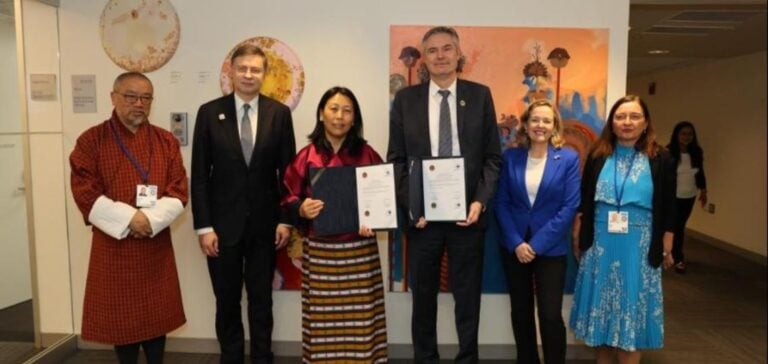For the first time,ISB has signed an agreement to support a renewable energy project in Bhutan, a country renowned for being one of only three in the world to have a negative carbon footprint. The project, which includes solar photovoltaic systems and hydroelectric installations, is financed by a 30-year loan of 150 million euros. It aims to generate 310 MW of new renewable energy to serve communities in remote areas.
Details of financing and project objectives
This ISB funding will support the construction of small and medium-sized run-of-river hydroelectric plants and photovoltaic generation capacity. The aim is to help the Bhutanese government diversify the country’s energy mix, also enabling the cross-border exchange of clean energy and improving access to green energy for thousands of households.
Anticipated impact on sustainable development
The loan will make a significant contribution to Bhutan’s ambitious goal of carbon neutrality, strengthening the country’s energy security and increasing the use of renewable energies. In addition, the project is in line with Bhutan’s commitments to nationally determined contributions (NDCs) on climate change.
Regional and international implications
The initiative is aligned with the EU’s Global Gateway strategy, which aims to improve global and regional connectivity in various sectors, including climate and energy. As a key player in this strategy, the EIB plans to support at least 100 billion euros of investment by 2027, representing around a third of the strategy’s overall target.
The loan was signed at the 2024 Spring Meetings of the World Bank and IMF by Leki Wangmo, Bhutan’s Secretary of Finance, and Markus Berndt, Acting Managing Director of EIB Global, in the presence of Nadia Calviño, President of EIB. Nadia Calviño emphasized the environmental and social benefits of providing green, reliable and affordable energy, especially in remote areas.






















